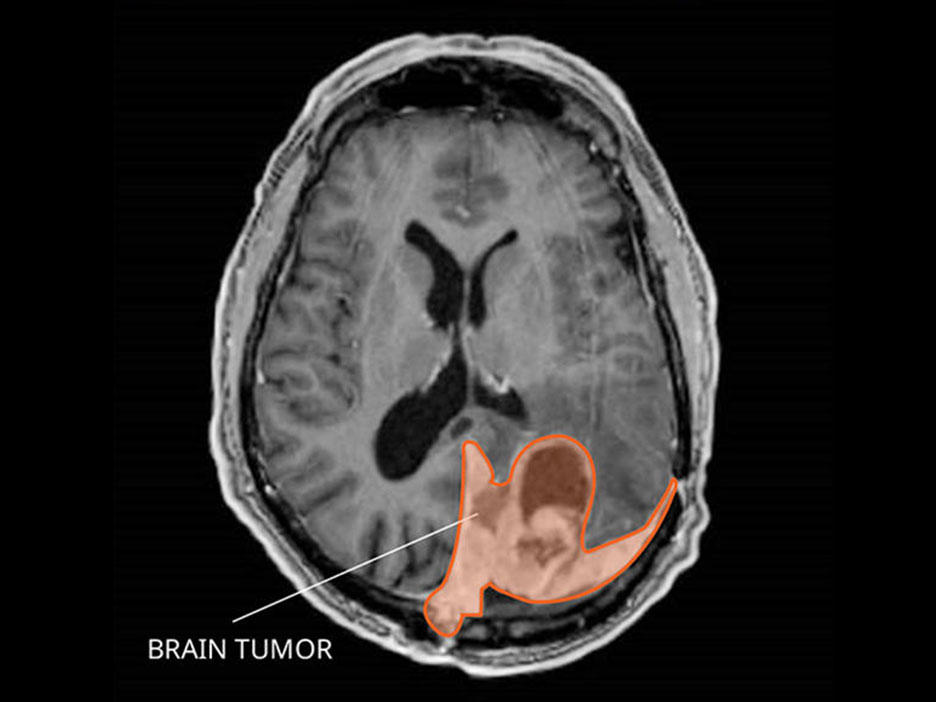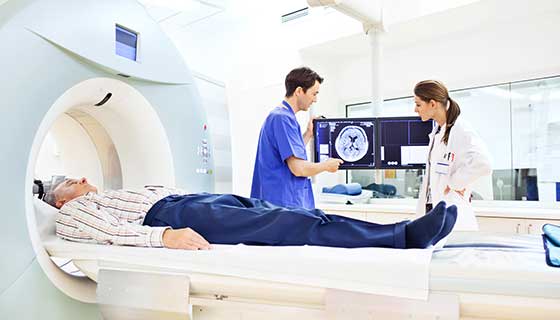Explore web search results related to this domain.

The flagship scheme would transfer responsibility for social care from Scottish councils to a new national body.
The Scottish government is again delaying its flagship plans for a National Care Service - but denies reports that the policy has been dropped.Health Secretary Neil Gray said he was "absolutely committed" to the scheme, which aims to transfer responsibility for social care away from councils to a new national body.Council body Cosla and trade unions previously withdrew support, while health boards and care organisations also expressed concerns.The legislation aims to centralise adult social care currently delivered by local authorities into a single body accountable to the Scottish government.

The former president’s health policies are a contradictory mish-mash of vaccine skepticism, deregulation and culture-war grievances.
When former President Donald Trump alluded to “concepts of a plan” for health care during his September debate against Vice President Kamala Harris, it spawned memes (and Halloween costumes). It’s since evolved into a pitch to “Make America Healthy Again,” a tagline borrowed from Trump’s increasingly prominent ally Robert F.Yet the ongoing lack of actual details — whether related to the Affordable Care Act, the regulation of food and medicines, or the direction of public health institutions — leaves voters with no choice but to fill in the blanks with the information at hand.Lisa Jarvis is a Bloomberg Opinion columnist covering biotech, health care and the pharmaceutical industry.
Most people with atypical and anaplastic meningiomas receive additional treatments after surgery. These treatments may include radiation, chemotherapy, or clinical trials. Clinical trials test new chemotherapy, targeted therapy, or immunotherapy drugs. Treatments are decided by the patient’s ...
Most people with atypical and anaplastic meningiomas receive additional treatments after surgery. These treatments may include radiation, chemotherapy, or clinical trials. Clinical trials test new chemotherapy, targeted therapy, or immunotherapy drugs. Treatments are decided by the patient’s health care team based on the patient’s age, remaining tumor after surgery, tumor type, and tumor location.Learn about atypical and anaplastic meningioma grades, features, causes, symptoms, who the tumors affect, how and where they form, and treatments.A meningioma is a primary central nervous system (CNS) tumor. This means it begins in the brain or spinal cord. Overall, meningiomas are the most common type of primary brain tumor. However, higher grade meningiomas are very rare.Primary CNS tumors are graded based on a tumor tissue analysis performed by a neuropathologist. Meningiomas are grouped into three grades based on their characteristics. Each grade (1, 2, or 3, also written as I, II, or III) includes different meningioma subtypes.


Mr Mardell, 63, said he now relies ... team of carers. ... "My quality of life is so poor that I believe without my family and friends, I couldn’t continue with life. “I’m constantly in pain and have very limited mobility." When an MRI scan detected a meningioma in September ...
Mr Mardell, 63, said he now relies on his wife Sandra, their two children, aged 16 and 21, and a team of carers. ... "My quality of life is so poor that I believe without my family and friends, I couldn’t continue with life. “I’m constantly in pain and have very limited mobility." When an MRI scan detected a meningioma in September 2020, Mr Mardell was assured "it should cause no symptoms", according to Slater and Gordon Lawyers.Tony Mardell describes his suffering, as a hospital trust is investigated by police over his care.A father-of-two has told how he changed from a sociable businessman to "a shell of a person", as a hospital trust is investigated over his care.The care he and other patients received from University Hospitals Sussex NHS Foundation Trust (UHSussex) is under investigation by Sussex Police as part of Operation Bramber.
Our highly trained specialists are available 24/7 via phone and on weekdays can assist through online chat. We connect patients, caregivers, and family members with essential services and resources at every step of their cancer journey. Ask us how you can get involved and support the fight ...
Our highly trained specialists are available 24/7 via phone and on weekdays can assist through online chat. We connect patients, caregivers, and family members with essential services and resources at every step of their cancer journey. Ask us how you can get involved and support the fight against cancer.Whether the tumor was removed completely or not, your health care team will want to follow up closely with you, especially in the first few months and years after treatment to make sure there is no progression or recurrence.Once you have recovered from treatment, your doctors will try to determine if damage was done to the brain or other areas. Careful physical exams and imaging tests (CT or MRI scans) might be done to determine the extent and location of any long-term changes in the brain.Talk with your doctor about developing your survivorship care plan.

After months as his wife's main carer, a man says he remains "confused" by the social care system.
Oxford University Hospitals NHS Foundation Trust apologised for the challenges encountered by the couple, while Swindon Borough Council said its adult social care team offered timely services and assessments to help "maximise independence".The social care system is "failing" according to a man who became his wife's primary carer at the age of 47.Complications following the removal of a brain tumour left Georgina Price needing round-the-clock care.Navigating the care system for the first time has left Mr Price feeling he and others are being "let down".
The Departments of Neurology and Neurosurgery provide expert care to thousands of adults and children each year, many with rare, complex conditions.

UpToDate, the evidence-based clinical decision support resource from Wolters Kluwer, is trusted at the point of care by clinicians worldwide.
People who have been diagnosed with a common brain tumor known as a meningioma have several treatment options. I recommend that patients and their families carefully evaluate and discuss the risks and benefits of each option with their physician.
Neurosurgeons at Brigham and Women’s Hospital have particular expertise treating meningiomas located in any area of the brain.. Recovery can vary according to the length and type of your surgery. Usually, patients are observed in the neurosurgery intensive care unit (ICU) overnight.A meningioma can be treated several different ways. Each option has its own risks and benefits that vary depending on the patient's condition.Because most benign meningiomas grow slowly, they may reach a relatively large size before causing symptoms, such as headaches, blurred vision, seizures, numbness, weakness in the arms or legs, or speech difficulty.Researchers at Dana-Farber/Brigham and Women’s Cancer Center (DF/BWCC) are studying the genetic factors related to the growth of meningiomas. By studying our patients’ tumors, we and others have identified important new genes in meningioma growth.


UFC star Max Holloway urges athletes to "take care of their brains" amid discussions about head injuries in the NFL.
Holloway, who withdrew three days before a fight against Brian Ortega in 2018 with concussion-like symptoms, has hinted at taking steps to preserve his health throughout his career, including limiting sparring before fights.UFC star Max Holloway has urged athletes to "take care of your brain" amid discussions about head injuries in American football."[Tagovailoa] is an animal, the dude is worth so much money, he's gotta know what he's doing. But the main thing I would say is take care of your brain," said Holloway."People will never know. After my career maybe I'll talk about it and all the stuff we've been doing, but listen, take care of your brains, do your homework, get on it and be smart."
We discuss meningioma cases with ... recommended treatment strategy for you. Treatment options include skull base surgery, minimally invasive keyhole and endoscopic surgery, radiotherapy, and careful observation....
We discuss meningioma cases with your hospital's multidisciplinary tumor board, a team of specialists that shares opinions and then synthesizes them into a recommended treatment strategy for you. Treatment options include skull base surgery, minimally invasive keyhole and endoscopic surgery, radiotherapy, and careful observation.A meningioma is a tumor that grows from the protective membranes, called meninges, which surround the brain and spinal cord. Most meningiomas are benign (not cancer) and slow growing; however, some can be malignant. Symptoms typically appear gradually and vary depending on the tumor location.Because of their slow growth, not all meningiomas need to be treated immediately.YouTube Video: Meningiomas- Risk Factors, Treatment Options and Future Advances, with Dr.


Tom Brady has thoughts on Azeez Al-Shaair's hit on Trevor Lawrence, and they might arrive as a surprise, considering the source.
Brady told Cowherd that he has "mixed emotions" on the topic, then told the story of a lesson his teammates taught him early in his career when he got his helmet knocked off after sliding late."The quarterbacks need to take better care of themselves," Brady said. ... "When you run, you put yourself in a lot of danger. And when you do that, I don't think the onus of protecting an offensive quarterback who's running should be on a defensive player.
Learn about the different treatment options for specific types of brain and spinal cord tumors.
For meningiomas that are atypical/invasive (grade II) or anaplastic (grade III), which tend to come back after treatment, radiation therapy is typically given after surgery even if all of the visible tumor has been removed.Most meningiomas tend to grow slowly, so small tumors that aren’t causing symptoms can often be watched rather than treated, particularly in the elderly.For meningiomas that recur after initial treatment, further surgery (if possible) or radiation therapy may be used.Meningiomas of the spinal canal are often cured by surgery, as are some ependymomas.
Our neurosurgeons have particular expertise in removing and treating meningiomas, including in areas of the skull base that traditionally are difficult to reach. Our unique combination of world-leading technology, teamwork, technical skill and compassion brings exceptional, individualized care to ...
Our neurosurgeons have particular expertise in removing and treating meningiomas, including in areas of the skull base that traditionally are difficult to reach. Our unique combination of world-leading technology, teamwork, technical skill and compassion brings exceptional, individualized care to patients with meningiomas.In the Neuroscience Intensive Care Unit, one of the largest such units in the country, critical care specialists are available 24/7. The medical team includes neuro-radiologists who analyze imaging, neuro-pathologists who diagnose tumor type, and neuro-anesthesiologists who specialize in assisting surgical treatment of brain tumors. Our Meningioma treatment team is also nationally known for its scientific pursuits surrounding the treatment and research of these tumors.From basic science examining the underlying genetic and molecular profile of these tumors, to surgical techniques, patient outcome and clinical trials, we strive to lay the scientific foundation today that will help guide clinical care in the future. The Department of Neurosurgery includes 24 neurosurgeons – among them world leaders in the diagnosis and treatment of meningiomas.In additional to their exceptional technical skill, our neurosurgeons are known for their clear communication, compassion, and ample time devoted to personalized care and attention. We have a talented team of neurosurgeons with deep expertise in treating meningiomas of the brain, including:


Vice President Harris's plan to have Medicare cover long-term home healthcare could be a lifesaver. Our columnist, Janna Herron, knows this firsthand.
That's the heart-rending calculation my stepmother-in-law faced earlier this year when she wanted to bring home her husband, my father-in-law, after he suffered a debilitating heart attack in December. Because Medicare doesn't cover long-term care, any money going to home health aides had to come out of her savings.It often jars families when they find out that Medicare — the federally run healthcare program that covers 67.5 million seniors and individuals with disabilities — does not cover most long-term care, whether it's in a nursing home or at home.Most put in at least 20 hours of care each week, AARP found, helping with daily activities, performing nursing tasks, coordinating services, providing transportation, shopping, or advocating for their loved one.The median cost of in-home care is $30 per hour in the US, according to A Place for Mom, a senior living referral service, which works out to over $20,000 a year for just two-hour visits every day.
This is the most common type of tumor that forms in the head and may affect the brain. Find out about symptoms, diagnosis and treatment.

The vice president's goal to cap the costs of rearing children to 7% of income will create administrative and implementation headaches.
Compared with former President Donald Trump’s answer to a similar question a few weeks ago, in which he meandered from to tariffs to his daughter before declaring that “child care is child care,” it was at least a direct answer, if light on details.Unfortunately, the one detail included in Harris’ response — the cap on costs at 7% of income — is problematic. It’s a worthy and necessary goal to have child care cost a smaller share of family income, but latching too tightly on to this number risks a Trojan horse of administrative burdens and implementation difficulties.“My plan is that no family, no working family, should pay more than 7% of their income in child care.” That’s what Vice President Kamala Harris said at a recent event in Philadelphia with the National Association of Black Journalists when asked about what she would do about the rising cost of child care.
Sometimes radiation can help reduce the size of a meningioma. Radiation may also be considered to treat small remainders of the tumor after surgery. This procedure can also be used when a patient is too ill to undergo surgery. Your neurosurgeon will carefully assess the size, characteristics ...
Sometimes radiation can help reduce the size of a meningioma. Radiation may also be considered to treat small remainders of the tumor after surgery. This procedure can also be used when a patient is too ill to undergo surgery. Your neurosurgeon will carefully assess the size, characteristics and, most importantly, the location of the meningioma.When Peter fell down stairs and hit his head, he didn’t expect it to save his life. An imaging study revealed a skull base meningioma — a benign tumor of the covering of the brain. He sought care from neurosurgeon Raj Mukherjee, M.D., M.P.H., who performed a minimally invasive craniotomy and removed the tumor.In the base of the skull: Another challenging presentation is a skull base meningioma that grows near the foramen magnum, the large opening at the bottom of the skull where it intersects with the spinal column. Several critical blood vessels and nerves sit at the base of the skull. It is often important to have a multidisciplinary team care for these types of tumors.A diagnosis of a meningioma can be frightening, but most of these tumors are treatable with surgery. Here's what patients need to know, with insight from the experts at Johns Hopkins' Comprehensive Brain Tumor Center.


Hot on the heels of US Vice President Kamala Harris outlining her plan to cover in-home senior care if she becomes president, Wall Street analysts are predicting that companies involved with the business will benefit from her proposal.
Shares of in-home care providers Addus HomeCare, Aveanna Healthcare and Pennant Group jumped sharply when Harris first announced the plan earlier this month.All three stocks are now among the top gainers in the Russell 2000 Growth Health Care Services index for the year.

Medicare beneficiaries encouraged to evaluate their plan benefits during annual enrollment period, Oct. 15-Dec. 7ORANGE, Calif., Oct. 01, 2024 (GLOBE NEWSWIRE) -- Alignment Health Plan, an award-winning Medicare Advantage (MA) plan from Alignment Health, today announced more than 55 plan benefit ...
Medicare beneficiaries encouraged to evaluate their plan benefits during annual enrollment period, Oct. 15-Dec. 7ORANGE, Calif., Oct. 01, 2024 (GLOBE NEWSWIRE) -- Alignment Health Plan, an award-winning Medicare Advantage (MA) plan from Alignment Health, today announced more than 55 plan benefit options designed to meet seniors’ evolving health care needs.For 2025, Alignment is offering more choices for the growing population of seniors who need specialized care and maintaining consistency in the benefits it offers that holistically address seniors’ overall health and wellness. The plans will be available to 8.1 million Medicare-eligible adults, who can select from Alignment’s portfolio during the Medicare annual enrollment period, which runs Oct.Seniors eligible for both Medicare and Medicaid can enroll in dual-eligible special needs plans (D-SNPs), which provide enhanced care coordination and additional benefits beyond what is typically offered by Medicaid or original Medicare alone.New for 2025, Alignment is offering for the first time an HMO point-of-service D-SNP called the Dual Select+ in Texas that will focus on dually eligible beneficiaries who want integrated, comprehensive care, financial support and rich supplemental benefits such as a $125 monthly over-the-counter (OTC) allowance and $0 copay on all covered Part D Drugs.





